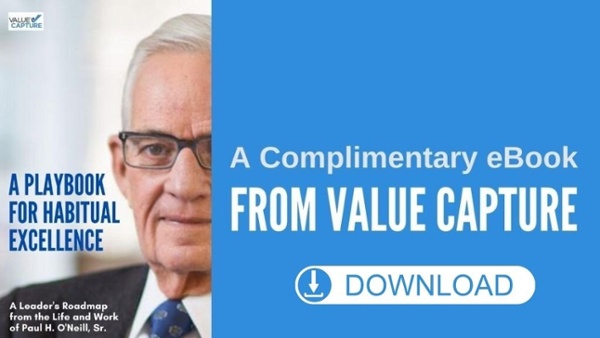The Johnson Institute for Responsible Leadership, of the University of Pittsburgh Graduate School of Public and International Affairs, published a 2019 case study examining the role fundamental leadership principles and practices have played in the career of Paul O'Neill. O'Neill has been steadfast in his values-based approach, whether in government, the private sector, or not-for-profit organizations. His unwavering values include:
- respect and concern for all people;
- continually seeking ways to improve systems and outcomes;
- decision-making based on evidence;
- integrity and accountability; and,
- stewardship.
O'Neill consistently challenges leaders who strive to create habitually excellent organizations to consider the following:
Can everyone in your organization answer "yes," every day, to these three questions:
- Am I treated with dignity and respect by everyone I encounter, regardless of job title, education, ethnicity, or any other distinguishing characteristic?
- Am I given everything I need, such as training, support, and tools, to make a contribution to the organization that has meaning in my life?
- Am I recognized for my work by someone whose opinion matters to me?
The study concludes by stating:
"In an era when evidence-based decision-making often falls victim to political expediency or succumbs to a blizzard of social media opposition, Paul O’Neill’s approach to leadership is perhaps viewed as quaint by some cynics. Yet leadership that blends demanding standards of performance with a concern for the individual will always be beneficial to our institutions, our world, and our fellow human beings."
Geoff Webster, Value Capture Principal, followed this study with a blog post for the Shingo Institute, in which Geoff provides personal insights and examples of specific O'Neill leadership behaviors. Please click here to read A Study in Principles That Drive Habitual Excellence."
Free eBook:



Submit a comment